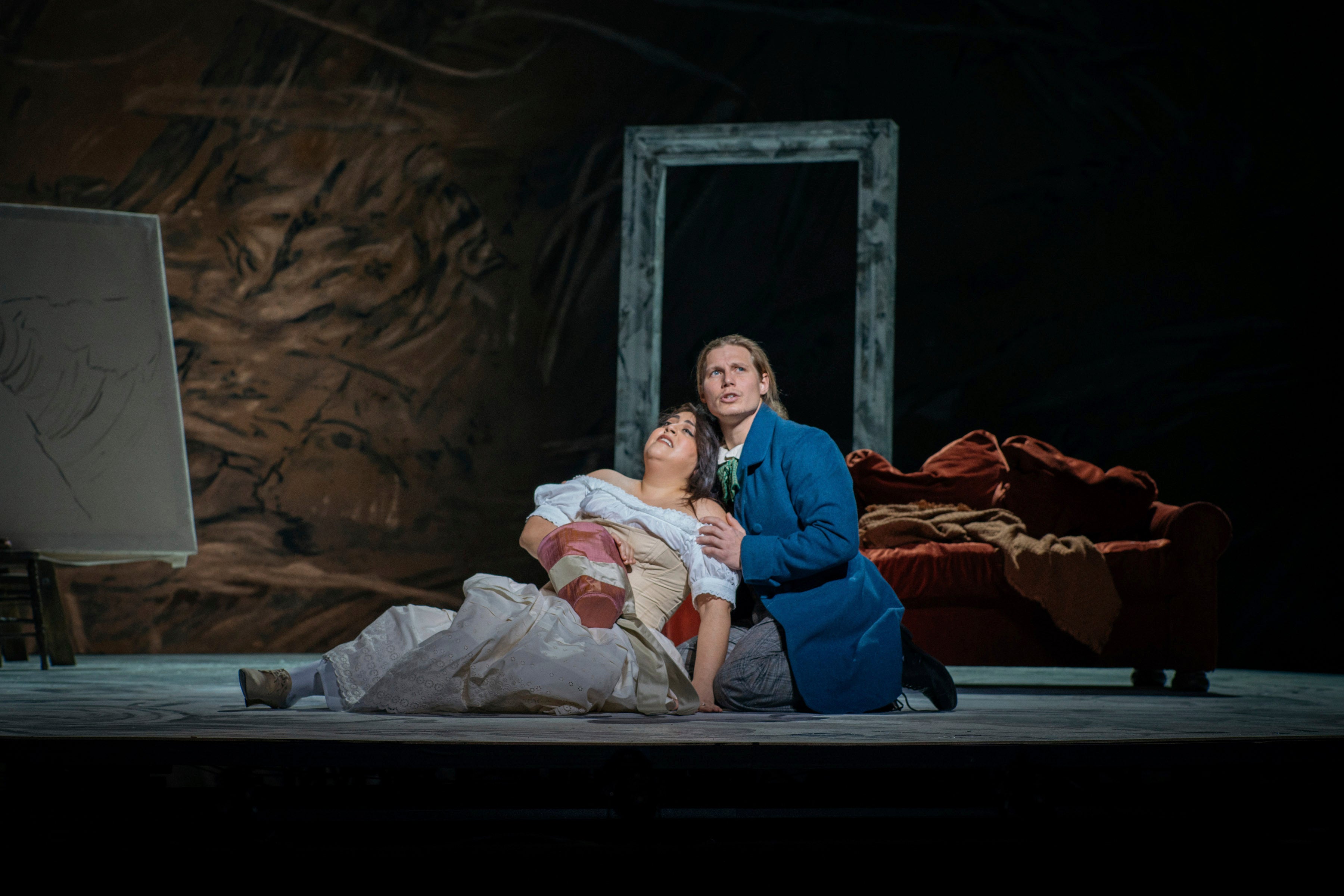New ‘La Boheme’ tells story in reverse for happy ending
A new production of “La Boheme” shakes up the old favorite by telling the story in reverse

Your support helps us to tell the story
From reproductive rights to climate change to Big Tech, The Independent is on the ground when the story is developing. Whether it's investigating the financials of Elon Musk's pro-Trump PAC or producing our latest documentary, 'The A Word', which shines a light on the American women fighting for reproductive rights, we know how important it is to parse out the facts from the messaging.
At such a critical moment in US history, we need reporters on the ground. Your donation allows us to keep sending journalists to speak to both sides of the story.
The Independent is trusted by Americans across the entire political spectrum. And unlike many other quality news outlets, we choose not to lock Americans out of our reporting and analysis with paywalls. We believe quality journalism should be available to everyone, paid for by those who can afford it.
Your support makes all the difference.The man who staged Wagner in a parking garage and put his audience in stretch limos to watch an opera while driving around Los Angeles is now turning his hand to a staple of the repertory.
And, typically, Yuval Sharon’s version of Puccini’s “La Boheme” won’t be like any other you may have seen.
His production opening this weekend at the Detroit Opera plays the four acts backwards. So Mimi dies near the beginning, and then returns to life for the remainder of the opera, which ends on a high note (literally, a high C) as she and her new lover walk off into the Parisian night together.
“By putting the opera in reverse order,” Sharon said in an interview, “we get to really emphasize that of course they’re going to face death, disappointment and betrayal, but it’s all worth it because there’s a moment where we’re completely alive and electrified by falling in love.”
Sharon, who became the company’s artistic director during the pandemic, has a history of unconventional approaches to opera. As founder of The Industry in Los Angeles, he staged new work on freeways, city streets and in a train station. Once in Detroit, he offered a condensed version of Wagner’s “Götterdämmerung” to be viewed by spectators driving slowly through a parking garage.
“Boheme” marks the company’s first live performances in the Detroit Opera House since before COVID struck, and Sharon said it’s more important than ever to find ways to make opera relevant.
“We need to explore and sometimes explode our idea of what opera is so that it can have a future,” he said. “It seems like the perfect time to be undertaking an experiment like this.… a time where we have been questioning everything about society and art’s role in our society.”
Not everyone was immediately convinced, including the production’s conductor, Roberto Kalb.
“Like everyone, I thought, why are we doing this in reverse?” Kalb said. “I thought, you know, it might have been some PR stunt.”
But listening to Sharon’s vision and getting to work on the piece in rehearsal has changed his view.
“In the original order you start from a point of such high entertainment and then descend into the inevitability of death,” he said. “Here, there’s a shock, there’s death, and then you find out what happened and you rise from the ashes.
“I’ve enjoyed finishing rehearsals and feeling lighter as opposed to feeling, ‘Oh, I love this piece but I’m in tears,‘” he said.
The opera, which Sharon noted contains less than two hours of music, is being presented without intermission. “It’s so short, and so fast, it goes by in a second, like youth,” he said.
No pauses will be needed for scene changes because the set, designed by John Conklin, is minimalist to an extreme: an elevated, revolving turntable, a wood-and-steel door frame, and an abstract painted backdrop.
To clarify the transitions between acts for the audience, Sharon has enlisted 87-year-old George Shirley, a Detroit resident and a legendary figure in music as the first black tenor to star at the Metropolitan Opera. He plays the speaking role of a character named the Wanderer, who offers brief introductions to each act and occasionally comments on the action.
The production, which opens April 2 with additional performances April 6 and 10, is co-sponsored by Boston Lyric Opera and Spoleto Festival USA and will also be part of Opera Philadelphia’s 2022-23 season.
Sharon said “Boheme” seemed especially ripe for radical reinterpretation precisely because of its popularity. It’s the most-performed work in the history of the Metropolitan Opera, where it’s on display virtually every season in the lavishly traditional Franco Zeffirelli production.
“You get the feeling that ‘Boheme’ always stays ’Boheme,'” Sharon said. “I think that’s been to its detriment because it gets to seem routine in the way we think about a piece that is so fresh. You fall in love with it instantly, and yet it suffers from familiarity.”
Marc Scorca, president and CEO of Opera America — who said he “can’t wait to see” Sharon’s production — echoed that view.
“There’s a danger that these great pieces would be taken for granted,” he said. “Oh, you sing along with them, you know how they go, how they end.
“Isn’t it wonderful to have a fresh take on it.”